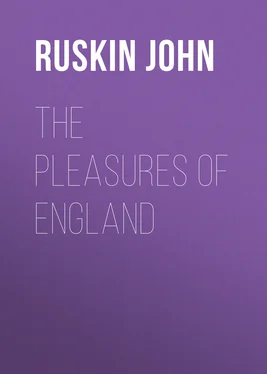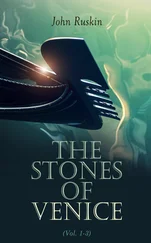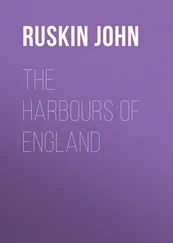John Ruskin - The Pleasures of England
Здесь есть возможность читать онлайн «John Ruskin - The Pleasures of England» — ознакомительный отрывок электронной книги совершенно бесплатно, а после прочтения отрывка купить полную версию. В некоторых случаях можно слушать аудио, скачать через торрент в формате fb2 и присутствует краткое содержание. Жанр: foreign_prose, История, foreign_edu, foreign_antique, на английском языке. Описание произведения, (предисловие) а так же отзывы посетителей доступны на портале библиотеки ЛибКат.
- Название:The Pleasures of England
- Автор:
- Жанр:
- Год:неизвестен
- ISBN:нет данных
- Рейтинг книги:5 / 5. Голосов: 1
-
Избранное:Добавить в избранное
- Отзывы:
-
Ваша оценка:
- 100
- 1
- 2
- 3
- 4
- 5
The Pleasures of England: краткое содержание, описание и аннотация
Предлагаем к чтению аннотацию, описание, краткое содержание или предисловие (зависит от того, что написал сам автор книги «The Pleasures of England»). Если вы не нашли необходимую информацию о книге — напишите в комментариях, мы постараемся отыскать её.
The Pleasures of England — читать онлайн ознакомительный отрывок
Ниже представлен текст книги, разбитый по страницам. Система сохранения места последней прочитанной страницы, позволяет с удобством читать онлайн бесплатно книгу «The Pleasures of England», без необходимости каждый раз заново искать на чём Вы остановились. Поставьте закладку, и сможете в любой момент перейти на страницу, на которой закончили чтение.
Интервал:
Закладка:
On which I am the more disposed, and even compelled, here to insist, because your modern ideas of Development imply that you must all turn out what you are to be, and find out what you are to know, for yourselves, by the inevitable operation of your anterior affinities and inner consciences:—whereas the old idea of education was that the baby material of you, however accidentally or inevitably born, was at least to be by external force, and ancestral knowledge, bred; and treated by its Fathers and Tutors as a plastic vase, to be shaped or mannered as they chose, not as it chose, and filled, when its form was well finished and baked, with sweetness of sound doctrine, as with Hybla honey, or Arabian spikenard.
Without debating how far these two modes of acquiring knowledge—finding out, and being told—may severally be good, and in perfect instruction combined, I have to point out to you that, broadly, Athens, Rome, and Florence are self-taught, and internally developed; while all the Gothic races, without any exception, but especially those of London and Paris, are afterwards taught by these; and had, therefore, when they chose to accept it, the delight of being instructed, without trouble or doubt, as fast as they could read or imitate; and brought forward to the point where their own northern instincts might wholesomely superimpose or graft some national ideas upon these sound instructions. Read over what I said on this subject in the third of my lectures last year (page 79), and simplify that already brief statement further, by fastening in your mind Carlyle's general symbol of the best attainments of northern religious sculpture,—"three whalecubs combined by boiling," and reflecting that the mental history of all northern European art is the modification of that graceful type, under the orders of the Athena of Homer and Phidias.
And this being quite indisputably the broad fact of the matter, I greatly marvel that your historians never, so far as I have read, think of proposing to you the question—what you might have made of yourselves without the help of Homer and Phidias: what sort of beings the Saxon and the Celt, the Frank and the Dane, might have been by this time, untouched by the spear of Pallas, unruled by the rod of Agricola, and sincerely the native growth, pure of root, and ungrafted in fruit of the clay of Isis, rock of Dovrefeldt, and sands of Elbe? Think of it, and think chiefly what form the ideas, and images, of your natural religion might probably have taken, if no Roman missionary had ever passed the Alps in charity, and no English king in pilgrimage.
I have been of late indebted more than I can express to the friend who has honoured me by the dedication of his recently published lectures on 'Older England;' and whose eager enthusiasm and far collected learning have enabled me for the first time to assign their just meaning and value to the ritual and imagery of Saxon devotion. But while every page of Mr. Hodgett's book, and, I may gratefully say also, every sentence of his teaching, has increased and justified the respect in which I have always been by my own feeling disposed to hold the mythologies founded on the love and knowledge of the natural world, I have also been led by them to conceive, far more forcibly than hitherto, the power which the story of Christianity possessed, first heard through the wreaths of that cloudy superstition, in the substitution, for its vaporescent allegory, of a positive and literal account of a real Creation, and an instantly present, omnipresent, and compassionate God.
Observe, there is no question whatever in examining this influence, how far Christianity itself is true, or the transcendental doctrines of it intelligible. Those who brought you the story of it believed it with all their souls to be true,—and the effect of it on the hearts of your ancestors was that of an unquestionable, infinitely lucid message straight from God, doing away with all difficulties, grief, and fears for those who willingly received it, nor by any, except wilfully and obstinately vile persons, to be, by any possibility, denied or refused.
And it was precisely, observe, the vivacity and joy with which the main fact of Christ's life was accepted which gave the force and wrath to the controversies instantly arising about its nature.
Those controversies vexed and shook, but never undermined, the faith they strove to purify, and the miraculous presence, errorless precept, and loving promises of their Lord were alike undoubted, alike rejoiced in, by every nation that heard the word of Apostles. The Pelagian's assertion that immortality could be won by man's will, and the Arian's that Christ possessed no more than man's nature, never for an instant—or in any country—hindered the advance of the moral law and intellectual hope of Christianity. Far the contrary; the British heresy concerning Free Will, though it brought bishop after bishop into England to extinguish it, remained an extremely healthy and active element in the British mind down to the days of John Bunyan and the guide Great Heart, and the calmly Christian justice and simple human virtue of Theodoric were the very roots and first burgeons of the regeneration of Italy. 1 1 Gibbon, in his 37th chapter, makes Ulphilas also an Arian, but might have forborne, with grace, his own definition of orthodoxy:—and you are to observe generally that at this time the teachers who admitted the inferiority of Christ to the Father as touching his Manhood, were often counted among Arians, but quite falsely. Christ's own words, "My Father is greater than I," end that controversy at once. Arianism consists not in asserting the subjection of the Son to the Father, but in denying the subjected Divinity.
But of the degrees in which it was possible for any barbarous nation to receive during the first five centuries, either the spiritual power of Christianity itself, or the instruction in classic art and science which accompanied it, you cannot rightly judge, without taking the pains, and they will not, I think, be irksome, of noticing carefully, and fixing permanently in your minds, the separating characteristics of the greater races, both in those who learned and those who taught.
Of the Huns and Vandals we need not speak. They are merely forms of Punishment and Destruction. Put them out of your minds altogether, and remember only the names of the immortal nations, which abide on their native rocks, and plough their unconquered plains, at this hour.
Briefly, in the north,—Briton, Norman, Frank, Saxon, Ostrogoth, Lombard; briefly, in the south,—Tuscan, Roman, Greek, Syrian, Egyptian, Arabian.
Now of these races, the British (I avoid the word Celtic, because you would expect me to say Keltic; and I don't mean to, lest you should be wanting me next to call the patroness of music St. Kekilia), the British, including Breton, Cornish, Welsh, Irish, Scot, and Pict, are, I believe, of all the northern races, the one which has deepest love of external nature;—and the richest inherent gift of pure music and song, as such; separated from the intellectual gift which raises song into poetry. They are naturally also religious, and for some centuries after their own conversion are one of the chief evangelizing powers in Christendom. But they are neither apprehensive nor receptive;—they cannot understand the classic races, and learn scarcely anything from them; perhaps better so, if the classic races had been more careful to understand them .
Next, the Norman is scarcely more apprehensive than the Celt, but he is more constructive, and uses to good advantage what he learns from the Frank. His main characteristic is an energy, which never exhausts itself in vain anger, desire, or sorrow, but abides and rules, like a living rock:—where he wanders, he flows like lava, and congeals like granite.
Читать дальшеИнтервал:
Закладка:
Похожие книги на «The Pleasures of England»
Представляем Вашему вниманию похожие книги на «The Pleasures of England» списком для выбора. Мы отобрали схожую по названию и смыслу литературу в надежде предоставить читателям больше вариантов отыскать новые, интересные, ещё непрочитанные произведения.
Обсуждение, отзывы о книге «The Pleasures of England» и просто собственные мнения читателей. Оставьте ваши комментарии, напишите, что Вы думаете о произведении, его смысле или главных героях. Укажите что конкретно понравилось, а что нет, и почему Вы так считаете.












